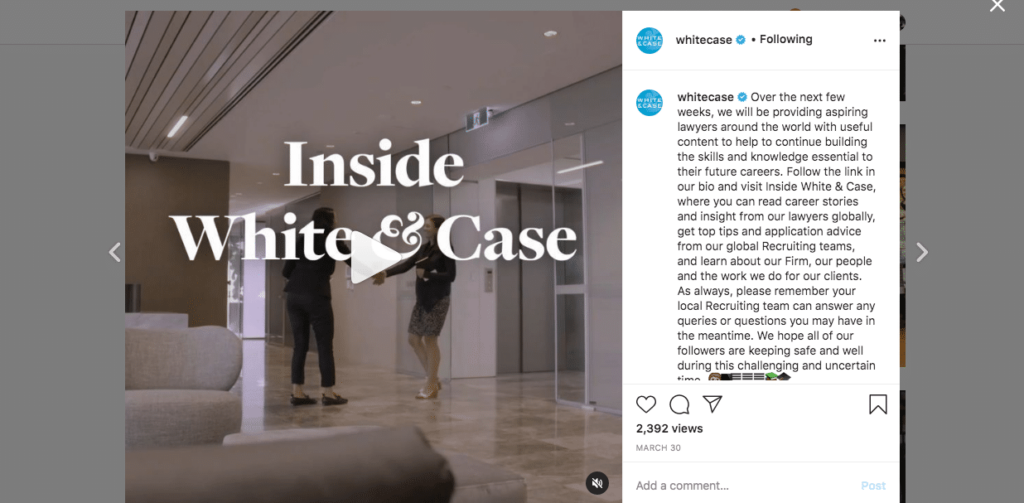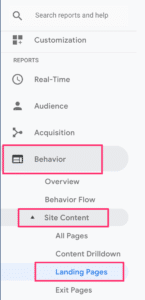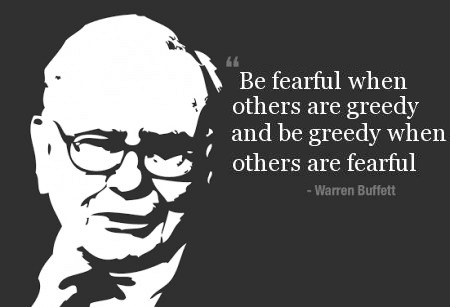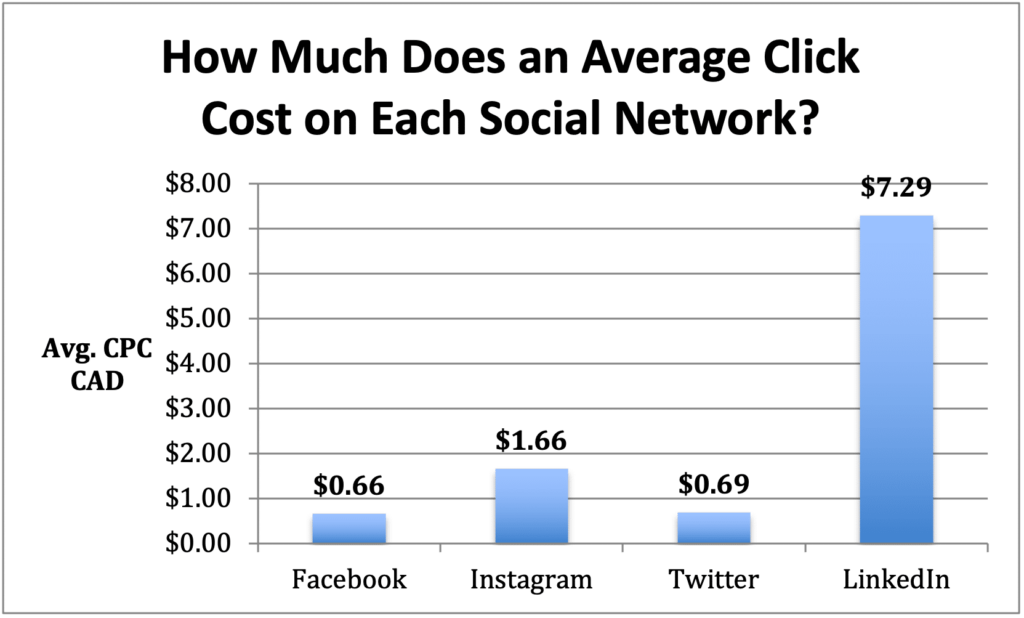Search engine optimization practices are constantly evolving, and it’s important to keep pace with best practices to improve law firm SEO in 2024 and beyond. Otherwise, you risk poor...
July 23, 2024
Digital Marketing Strategies for Law Firms During Covid-19: Part 3
It’s always important to be aware of the impression your law firm is making online, but in the current moment, this is likely to be your audience’s only experience of your brand.
This is Part 3 of our look at marketing strategies for law firms during Covid-19. In Part 1, we explored the state of the legal market and how law firms should approach marketing during these extraordinary times. In Part 2, we focused on the message and the moment and in part 3, we’re going to dive into digital marketing.
Focus on Your Law Firm’s Digital Presence
Conferences and events have been cancelled or moved online and your lawyers (hopefully) aren’t out shaking a lot of hands. Your firm’s website has never been more important to your marketing. So what kind of experience are you offering visitors to your website?
We recommend that every law firm carve out several hours to audit their website presence. Start from the most popular landing pages (more on this below) and navigate through the website as a user would. It can be helpful to have someone unfamiliar with your website complete this exercise, or better yet a knowledgeable website consultant.
To start, ask yourself the following questions:
- Do our competitors look better than us? (Be honest).
- Is our brand reflected correctly & consistent across the site and does it match what we are doing elsewhere, e.g. printed materials, social media, advertising etc.?
- Are our firm’s value propositions clear and prominently displayed?
- Do we provide social proof (testimonials, awards, recognition, etc.) to support our messaging?
- Do we offer high-quality resources on our website? Are these easy to find?
- Is content fresh, SEO optimized, contextually related to other parts of the site and easy for a user to find?
- Are our lawyer bios and photos impactful?
- Are events prominently promoted and integrated into the entire site to encourage lawyer engagement?
- Are we tracking visitor engagement and using this information to drive our marketing?
- Is the site being used to capture leads?
- Is our website slow to load when compared to my competitors?
- Is our website mobile friendly?
- Is our site accessible?
- Is the site secure and protected from hackers, e.g. can the site withstand a DDOS attack, malware injection etc.
- Does it have an SSL Certificate?
Note that the above is only a few thoughts to get you started and hardly a comprehensive list of everything thing to consider. Every law firm should audit its own digital presence periodically, especially during periods of transition. It can also be helpful to retain the services of an outside consultant, as this can provide a fresh perspective and alert you to issues and technical considerations that your firm may not be aware of, such as SEO, security concerns, and web accessibility issues.
For more resources on conducting an internal website audit, including checking for website accessibility and SEO, please email us at info@fsquaredmarketing.com and we’ll send you some excellent checklists and guides. If you would like an assessment of your firm’s brand and website, we would also be happy to talk.
Social Media is Essential for Branding During Social Distancing
As the virus forces us indoors and apart from one another, people are turning to social media to connect, chat with friends and family, play games, and attend virtual events, including fitness classes, church services, concerts, and conferences. “Depending on the research source, up to 51% of US adults are using social media at higher rates during the pandemic,” notes eMarketer.com.
Social Media is being used as a bridge to span physical distances. For law firms, it is increasingly important as a means for connecting with existing clients, new clients, networks of Industry professionals, and the public at large.
Every law firm should, at minimum, have a robust LinkedIn presence, just as every lawyer should, at minimum, have a completed LinkedIn profile. Whether your firm should also be active on Facebook, Instagram, Twitter, YouTube, etc. depends on your audience, your goals, and your capacity to stay active on the platform. There’s not much point in setting up a profile if you don’t have the time or motivation to post regularly and connect with followers.
Corporate law firms can find excellent branding opportunities even on platforms seen as less serious/professional. For example, White & Case LLP has a phenomenal Instagram presence, which they use to provide a behind the scenes look at the firm, to attract associates, and to communicate the firm’s values.

Whether your firm maintains a presence on a number of platforms or limits itself to one or two, it is important to ensure that you’re maintain a consistent brand presence.
This is also absolutely the right time to audit your firm’s social media presence. A few questions to ask yourself:
- Are we active on the right platforms?
- Do all of our lawyers have completed LinkedIn profiles which reflect the brand of the firm?
- If our lawyers have social media presences on Twitter/Facebook/Instagram to promote their practices, do we have a list of their handles so that we can @ them when appropriate?
- Are our Firm pages/profiles complete, accurate, and updated with important information related to Covid-19 protocols and contact information?
- Do we regularly and meaningfully engage with our target audience on social media or do we just post and pray?
Ensuring Content Marketing is Cost-Effective
Remember our, somewhat artificial, distinction between Loudspeaker marketing and TedTalk marketing in Part 2? One of the biggest issues with TedTalk caliber marketing is that it’s time-consuming and expensive to produce. Good writing takes time. Producing a podcast, video, or infographic requires a significant investment. There is also the added channel of producing content quickly enough to match rapidly changing legal and regulatory landscapes.
This doesn’t mean you should cut down on content quality (or proofreading!). It means you need to have a plan in place for increasing the visibility of your content and for ensuring that it reaches a large, appropriate audience while it’s still relevant. Creating content isn’t enough. You need a plan, and possibly a budget, to promote it.
Adhering to SEO best practices can help to ensure that content performs well in organic search. Leveraging multiple content distribution channels, including eNewsletters, social media, and paid promotion, can help increase the size of your audience. One of the best means for reaching the right audience is to have your lawyers actively share firm content through their LinkedIn accounts, especially since LinkedIn has changed its algorithm to prioritize close connections.
Another strategy for improving the ROI on TedTalk marketing is to revitalize content that is already performing well. As our CEO Lynn Foley says, “Look at refreshing the content that your clients already love.” Have a great whitepaper on employment law? Consider updating it with a chapter on working remotely and republishing it across your channels. Also, consider how content might be transmuted into different media. For example, a well-researched article can lay the foundation for a video blog, webinar presentation, and a series of social media posts.
Take a Data-Informed Approach
If your firm’s website has Google Analytics (and it should!) check out the Landing Pages metrics, as this section can give you valuable insights into how people are accessing your website (e.g., what pages are they landing on and where are they coming from). This section will give you insights into:
- What content is bringing people to your website
- What referral sources are referring people to your website (e.g., newsletter, social media, other websites, paid advertising, etc.)
- How long people are spending on a page and what share of visitors bounce (e.g., exit the website without taking another action).
Once you know what is resonating with your audience, you can consider how to keep the ball rolling and further the scale the reach and effectiveness of your most popular content.

Now is the Time to Consider Paid Promotion
Law firms can also benefit from cheaper paid advertising on social media and through search engine marketing (SEM). With many companies decreasing their digital marketing budgets, prices for digital ads have become more affordable. This is because cost of digital ads are set through a bidding system, much like the stock market, with demand dictating the price.

The lower price of social media ads is especially good news for law firms looking to get their best content in front of a specific group of professionals. For corporate law firms, LinkedIn offers some of the best opportunities for targeted content promotion. It is possible to target audiences based on job titles, seniority, professional interests and membership in groups, among numerous other criteria. On LinkedIn it is also possible to target audiences who have previously visited your website or through matched email lists (be sure to ensure that you are GDPR compliant). If your goal is to attract a highly specific group, i.e., mining executives in California, LinkedIn advertising is certainly worth exploring.
The downside of LinkedIn advertising is that the average cost per click or cost per thousand impressions (CPM) is often significantly higher than Facebook/Instagram or Twitter advertising.
While cost per click depends on numerous factors, here is how social media averaging cost per click breaks down by platform:
- LinkedIn (Most Expensive)
- YouTube
- Twitter (Least Expensive)

Deciding how and where to promote your content requires balancing considerations of cost, targeting capabilities, as well as analyzing your key performance indicators (emails sent, calls made, whitepapers downloaded, etc). The good news is that its possible to track digital advertising results and compare performance across platforms and campaigns.
Sponsoring content might seem like the type of Loudspeaker marketing we suggested that firms deprioritize, at least for now. If your targeting is well done, however, you won’t be cluttering up peoples’ feeds with content that is irrelevant to their work or interests. When it’s strategically executed, digital advertising can be a way of mitigating the disadvantages of TedTalk marketing (time-intensive/expensive) with the advantages of Loudspeaker marketing (easy to scale/reaches a large audience).
Creating content is only step number one. Ensure that you have a plan in place for ensuring that it reaches the right audience.
Covid-19 Isn’t a Marketing Opportunity, but It Is Our Reality
No crisis should be exploited for personal (or organizational gain), whether that’s a pandemic or a reckoning with systemic racism. This pandemic is, however, not going away anytime soon and law firms and legal marketers can’t afford to wait until a return to normal. The truth is that marketing should always be evolving to reflect the state of the world and the mindset of clients.
This pandemic has changed some aspects of legal marketing, including shifting the composition of legal work in demand, and accelerated some trends, such as the preeminence of digital, but mostly, it has underscored the importance of empathy, sensitivity, and providing value. As Lynn Foley wrote back in May, “When we arrive at our ‘new normal’ it will be those that were there for their clients who will be by their side as they move forward.”
If you would like to speak with us about our digital marketing, website, graphic design, consulting or training services please send us an email at info@fsquaredmarketing.com.
Sign Up To Our Newsletter

